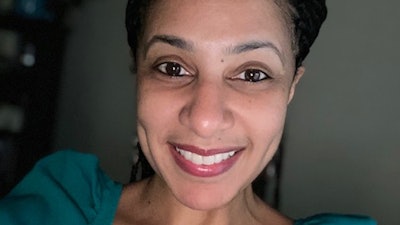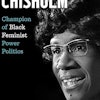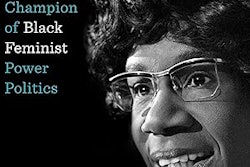About seven years ago, Columbia University welcomed its first HBCU Fellowship cohort, allowing students who had graduated from historically Black colleges and universities (HBCUs) to pursue select master’s degrees in the university’s School of Professional Studies (SPS), all the while getting financial, career, and academic support.
 Zelon Crawford
Zelon Crawford
"Graduate and undergraduate degrees are expensive,” Crawford says. “And so, we were trying to ensure that the students can focus on their academics, learning and meeting one another, networking, getting a job, and getting into graduate school. We're trying to defray as much of the financial burden from them as possible."
These advantages provided by the program — one of SPS’s “enrichment” programs — follow the fellows while they pursue their master’s degree at SPS and last a set number of semesters expected for degree completion.
Fellows are expected to engage with and give back to the campus community. From the start, applicants are asked about matters of leadership, community, and impact on Columbia and beyond, Crawford says.
Cohorts range from 17 to 20 fellows each and draw graduates from several HBCUs. In its first few years, the program only saw applications from students coming from the “usual suspects,” such as Howard, Hampton, Spelman, and Tuskegee universities, according to Crawford.
But through information sessions, graduate fairs, and partnerships with groups like the United Negro College Fund (UNCF), Columbia has been making a deliberate effort to recruit students more broadly.
"One of the things that we've done over the last several years is cast the net really wide and outreach to presidents and department chairs at all of the HBCUs to let them know about our program,” Crawford says. “We're outreaching to every single HBCU, because we know that they're graduating students who are absolutely outstanding, and we want them to have the opportunity to be able to come to Columbia.”
The fellows themselves are asked to help with information sessions and return to their alma maters to speak about the program.
The program is in the process of admitting its eighth cohort. It received applicants from a record 37 different HBCUs, 14 of which are new entries this year, according to Crawford. For its previous cohort, SPS saw applicants from 30.
Program adviser Dr. John E. Williams, a director of student affairs and DEI for graduate programs in sustainability management and sustainability science, tours the country and tells people about what the Ivy League school’s fellowship can offer them.
As a graduate of Columbia's Teacher's College who studied higher education leadership, he is familiar with matters of access and is an HBCU alum, having earned his master’s degree in history and bachelor’s degree in agribusiness from Florida A&M University.
 Dr. John E. Williams
Dr. John E. Williams
Part of the appeal and distinction of the program is that it allows students to take advantage of both Columbia and New York City, Williams says.
"I think being able to connect students from rural backgrounds, some of the rural HBCUs, and bringing them into New York City, to an institution like Columbia ... definitely sets this fellowship apart,” Williams says. “Being able to use NYC as a springboard to whatever industry or career, that's what makes this particular fellowship stand out a lot."
Ivy League universities, like Columbia, have a duty to really bolster their commitments to racial equity, justice, and equal opportunity partially because of their historical role and legacy in perpetuating and benefitting from inequities in higher ed, says Dr. Terrell Strayhorn, director of Virgina Union University’s Center for the Study of HBCUs.
Wealth inequities among schools in the higher ed landscape lead to disparities in educational opportunities, according to Strayhorn. Columbia’s total endowment alone for the fiscal year that ended in June 2023 was $13.64 billion, towering well above the top 10 HBCU endowments, individual and combined.
“For comparison, the largest HBCU endowment sits at $863 million (Howard University) and the vast majority have less than $100 million in assets, due to decades of inequitable funding, underfunding, and other challenges they face in growing their endowments, according to a recent survey by PGIM and UNCF,” says Strayhorn, noting that “to whom much is given, much more is required.”
Admission into an SPS master’s degree program does not automatically mean admission into the fellowship. But many who only get the former still come, says Crawford.
“The HBCU Fellowship program has positively impacted the diversity of all 18 programs,” says Crawford. “Many students who apply to SPS and are admitted but don’t receive the fellowship, still matriculate. They have been some of our most active community members and take advantage of everything Columbia has to offer — engagement with faculty, networking with peers and alumni, pursuing internships at some of the top companies in the world that are based here in NYC.”
Program leaders are aiming for the fellowship to expand in the future. One of their long-term goals is to double the size of future cohorts, Crawford adds. And Williams is hoping for additional financial support to keep the program growing.
“What the fellowship has shown us, has shown Columbia, has shown higher ed, is that no matter the historically Black college ... you belong at Columbia, and you can succeed at Columbia,” Williams says.
And what the ongoing success of Columbia’s HBCU Fellowship means is that there is a “scalable design” that other schools can also adopt, says Strayhorn.
“Collaborations between Ivy Leagues and HBCUs certainly can’t be merely a fleeting act of charity, but rather a durable, sustainable, and meaningful pathway, like this one, towards dismantling traditional structures and building a truly inclusive educational enterprise for all,” says Strayhorn.
Being able to have both a degree from an HBCU and another from an Ivy League institution makes the program fellows rare, perhaps even “absolutely unstoppable,” Crawford says.
According to a press release, past fellows — from the U.S. and countries including Jamaica and Kenya — have gone on to a host of varying opportunities, such as medical school, doctorates, Goldman Sachs, the NBA, and Disney.


















